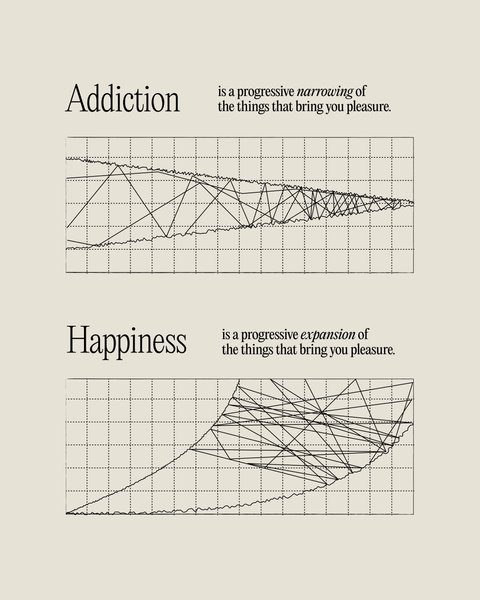Addiction is a progressive narrowing
of the things that bring you pleasure.
Happiness is a progressive expansion of the things that bring you pleasure. The former emerges passively.
The latter takes work.
Andrew D. Huberman, Ph.D.x.comAddiction is a progressive narrowing of the things that bring you pleasure. Happiness is a progressive expansion of the things that bring you pleasure. The former emerges passively. The latter takes work.

The biggest life hack is making sure you get your dopamine exclusively from activities that move you closer to your ideal life.
Jakob Greenfeldx.com

